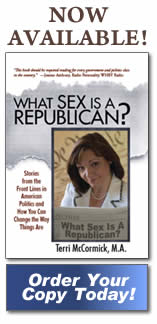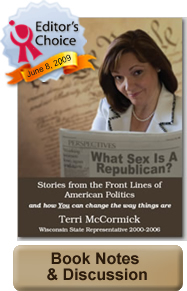A strict adherence to a core set of values and principles, incorruptibility is the standard for journalistic integrity of which the citizen/voter and candidate should be intimately aware.
 In today’s society of instantaneous communications via blogs and the Internet, we must all guard against journalists who are tempted to forego the following values and principles by way of self-interest and greed. According to the Society of Professional Journalists, the ethical standard of professionalism is to “seek truth and report it.
In today’s society of instantaneous communications via blogs and the Internet, we must all guard against journalists who are tempted to forego the following values and principles by way of self-interest and greed. According to the Society of Professional Journalists, the ethical standard of professionalism is to “seek truth and report it.
Journalists should be honest, fair and courageous in gathering reporting and interpreting information.” Personal agendas and conflicts of interest are not only barriers to honesty and integrity in public office, but they also can be barriers to integrity-driven journalists as well.
It is the citizen’s right and responsibility to hold local newspapers, radio news journalists, television news journalists, and news agencies reporting on the Internet accountable for violating the public trust in this regard. Realize that bloggers represent their own interests and are not credible, reliable or subject to the ethics code below.
The Society of Professional Journalists’ preamble and highlights from their Code of Ethics are below:
Members of the Society of Professional Journalists believe that public enlightenment is the forerunner of justice and the foundation of democracy. The duty of journalists is to further those ends by seeking truth and providing a fair and comprehensive account of events and issues. Journalists shall serve the public with thoroughness and honesty. Professional integrity is the cornerstone of a journalist’s credibility. Members share a dedication to ethical behavior and adopt this code to declare the Society’s principles and standards of practice.
- Seek Truth and Report It. Journalists should be honest, fair and courageous in gathering, reporting and interpreting information. This includes tests for accuracy. Always question sources’ motives before promising anonymity; never distort or mislead and avoid surreptitious methods of gathering information; distinguish between advocacy and news reporting; distinguish news from advertising and shun hybrids; recognize the special obligation to ensure the public’s business is conducted in the open.
- Minimize Harm. Ethical journalists treat sources, subjects and colleagues as human beings deserving of respect. Journalists should show compassion for those affected adversely by news coverage; pursuit of the news is not a license for arrogance. Private people have a greater right to control information about themselves than do public officials and those seeking office.
- Act Independently. Journalists should be free of obligation to any interest other than the public’s right to know. Journalists should avoid conflicts of interest, real or perceived; remain free of associations and activities that may compromise integrity or damage credibility; refuse gifts; disclose unavoidable conflicts; deny favored treatment to advertisers and special interests and resist their pressure to influence news coverage; be wary of sources offering information for favors or money.
- Be Accountable. Journalists should clarify and explain news coverage and invite dialogue with the public over journalistic conduct; encourage the public to voice grievances about the news media; admit mistakes and correct them promptly; expose unethical practices of journalists and the news media; abide by the same high standards to which they hold others.
Journalists, just as public officials, have a responsibility to the general public for ethical behavior. Integrity principles apply to all citizens, candidates and the media. Strict adherence to a core set of ethical principles, outlined above, provides the rules of engagement for the “fourth branch of government”—the press.
Citizen leaders—know your rights and responsibilities under the U.S. Constitution as they relate to freedom of the press and the first amendment, shield laws, and constitutional protections and the right to privacy, relative to the press. Tabloid journalists, bloggers and Internet voices—please know that constitutional rights and responsibilities apply to your form of media as well as to journalists.
At a time when competing sources for news and information is delivered in real time to Americans via the Internet, BlackBerries and iPhones, it is all too tempting to take shortcuts with the ethical standards listed above. It has been said that knowledge is power; it is hoped that ethical standards, as applied equally to citizens, candidates and the press, will ensure integrity leadership in getting our government back on track.
To continue reading this chapter, get your copy of “What Sex is a Republican in paperback or Kindle edition on Amazon.
About the Author:
Terri McCormick is an author, policy expert, educator, and former state representative to the Wisconsin State Legislature. Today, she offers her expertise in public and government relations through McCormick Dawson CPG Ltd., a trusted consultancy of independent contractors.
Ms. McCormick serves as president and CEO of the company, drawing from more than two decades of professional experience, a strong educational foundation, a host of industry-related publications, and a multitude of accolades, awards and formal recognitions. Holding a Master of Arts in administrative leadership from Marian University, and a Bachelor of Science in political science and public administration from the University of Wisconsin, Ms. McCormick received both degrees with high honors.
“What Sex is a Republican?” is sold on Amazon in both the paperback edition as well as Kindle edition. Read reviews on Amazon here.




Great post! Thanks for the reminder.
Integrity Journalism: http://t.co/2fRGTbfTMr